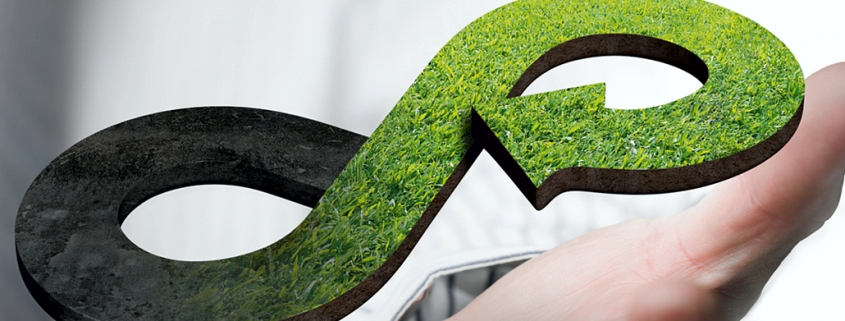The EU Commission Proposes: A Deal for Competitiveness and Decarburization in Europe
In February 2025, the European Commission presented the “Clean Industrial Deal”, a business plan to support the competitiveness and resilience of European industry. The proposed deal aims at decarbonization while securing the future of manufacturing in Europe.
As stated on the Commission’s homepage, faced with high energy costs and fierce global competition, European industries need urgent support. “The Clean Industrial Deal outlines concrete actions to turn decarbonization into a driver of growth for European industries. This includes lowering energy prices, creating quality jobs and the right conditions for companies to thrive.“ It would present measures to boost every stage of production, with a focus on:
- energy-intensive industries such as steel, metals, and chemicals, that urgently need support to decarbonize, switch to clean energy, and tackle high costs, unfair global competition, and complex regulations;
- the clean-tech sector which is at the heart of future competitiveness and necessary for industrial transformation, circularity, and decarburization.
Also important is circularity, which aims to reduce waste and extend the life of materials by promoting recycling, reuse, and sustainable production. “Maximizing EU’s limited resources and reducing overdependencies on third-country suppliers for raw materials is crucial for a competitive and resilient market,” the European Commission underlined
The Commission is convinced that the “Industrial Decarbonisation Accelerator Act” will increase demand for EU-made clean products, “by introducing sustainability, resilience, and made in Europe criteria in public and private procurements”. With the review of the “Public Procurement Framework” in 2026, the Commission intends to introduce sustainability, resilience, and European preference criteria in public procurement for strategic sectors. As reported, the act “will also launch a voluntary carbon intensity label for industrial products, starting with steel in 2025, followed by cement”.
Regarding circularity and recycling, the Commission is convinced that the EU has to secure access to critical raw materials and reduce exposure to unreliable suppliers. “At the same time, placing circularity at the core of our decarbonization strategy helps maximizing the EU’s limited resources”.
The Commission would therefore:
- Set up a mechanism enabling European companies to come together and aggregate their demand for critical raw materials.
- Create an “EU Critical Raw Material Centre” to jointly purchase raw materials on behalf of interested companies. Joint purchases create economies of scale and offer more advantage to negotiate better prices and conditions.
- Adopt a “Circular Economy Act” in 2026 to accelerate the circular transition and ensure that scarce materials are used and reused efficiently, reduce the global dependencies and create high quality jobs. The aim is to have 24 percent of materials circular by 2030.
Financing the clean transition
According to the European Commission, the “Clean Industrial Deal” will mobilize more than 100 billion Euro to support EU-made clean manufacturing. The executive body of the European Union proposes to:
- adopt a new “Clean Industrial Deal State Aid Framework” to accelerate the approval of state aid to roll out renewable energy, decarbonize industry and ensure sufficient manufacturing capacity of clean tech;
- strengthen the “Innovation Fund” and propose an “Industrial Decarbonisation Bank”, aiming for 100 billion Euro in funding;
- launch a dedicated call under “Horizon Europe” to stimulate research and innovation in these areas;
- amend the InvestEU Regulation to increase the number of financial guarantees that InvestEU can provide to support investments. This would in turn mobilize up to 50 billion Euro for the deployment of clean tech, clean mobility and waste reduction.
Acting on a global scale
“The EU needs reliable global partners more than ever,” the European Commission emphasized. Therefore, in addition to ongoing and new trade agreements, the executive body of the European Union would soon launch “the first ‘Clean Trade and Investment Partnerships’, which will diversify supply chains and forge mutually beneficial deals”.
At the same time, it “will act even more decisively to protect our industries from unfair global competition and overcapacities through a range of Trade Defence and other instruments.” The Commission intends also to simplify and strengthen the “Carbon Border Adjustment Mechanism (CBAM)”.
(Published in GLOBAL RECYCLING Magazine 1/2025, Page 7, Photo: TSUNG-LIN WU / fotolia.com)



